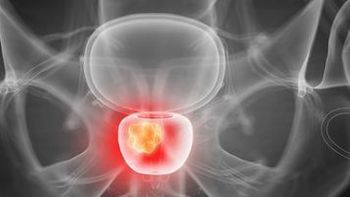
“This zone-dependent biopsy strategy warrants prospective evaluation to optimize the extent of systematic biopsies in presence of suspicious mpMRI lesions,” the authors wrote.

“This zone-dependent biopsy strategy warrants prospective evaluation to optimize the extent of systematic biopsies in presence of suspicious mpMRI lesions,” the authors wrote.

"Prior to this study, there was really no data on exactly how long it takes until Botox begins to take effect in the bladder," said Howard B. Goldman, MD.

These compensatory behaviors are associated with more severe urinary symptoms and higher anxiety and stress.
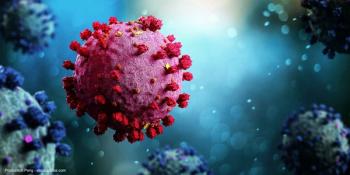
According to recently published studies, having COVID-19 could have lasting impacts on fertility and sexual function.

"Here we show that there are clear benefits in delaying radiographic progression or death, [PSA] progression, and other outcomes in the largest groups of men with metastatic hormone-sensitive prostate cancer and lymph node and bone metastases,” says Andrew Armstrong, MD.

Twelve percent of patients with negative results on conventional imaging had lesion localization on 18F-fluciclovine PET.

Experts in prostate cancer, bladder cancer, kidney stones, OAB/incontinence, BPH, and sexual dysfunction recap all the key advances from 2020.

Transperineal targeted biopsy with electromagnetic-tracking fusion technology is low risk and detects clinically significant prostate cancer as well as the transrectal fusion-guided approach, investigators report.

Investigators found that while patients without pain had an overall survival of 56 months, patients with pain had an overall survival of only 27 months.

This final analysis of the phase 3 PROSPER study supports enzalutamide and androgen deprivation therapy as the standard of care to improve overall survival in prostate cancer patients before the onset of detectable metastasis.

Apalutamide (ERLEADA) combined with androgen deprivation therapy improves overall survival more than androgen deprivation therapy alone in men with non-metastatic castration-resistant prostate cancer at high risk of metastases, according to results from investigators’ final analysis of the phase 3 SPARTAN trial.

U.S. academic centers using the Soltive SuperPulsed Laser System to treat stones are finding it offers several advantages compared with holmium:YAG laser lithotripsy. But more research comparing the two is needed, according to a presentation at the 2019 World Congress of Endourology in Abu Dhabi, United Arab Emirates.

Unhealthy eating, like that associated with the Western diet, is associated with notably worse semen quality and less favorable testicular function than healthier eating patterns, according to a study of nearly 3,000 young Danish men published in JAMA Network Open (2020; 3:e1921610).

Providers should incorporate discussion of dietary supplements into patient counseling, Kevin Koo, MD, MPH, MPhil, advises.

Modest hypofractionation is noninferior to conventional fractionation in the treatment of localized prostate cancer and causes no increase in side effects, according to 8-year outcomes from the CHHiP trial.

Inheriting the adrenal-permissive HSD3B1(1245C) genotype is associated with worse outcomes in low-volume metastatic prostate cancer and might someday help identify patients who could benefit from escalated therapy, according to a recent study.

“We’re in an era of more personalized or precision medicine, and the ability to target cancer treatment to a patient’s specific genetic mutation or biomarker is becoming the standard,” according to Richard Pazdur, MD.

Overcoming challenges of medical therapy starts with leveraging guidelines.
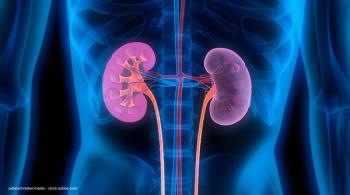
Two pharmaceuticals in late-stage development may offer new therapeutic options for patients with rare forms of hyperoxaluria.

Researchers studying a novel multimodal analgesia protocol at multiple institutions in the U.S. for patients having penile implant surgery found narcotic prescriptions before, during, and in the post-surgery recovery period fell from as high as 50 to 60 narcotic pills to 10 to 15 pills.

Myovant Sciences recently announced positive phase III trial results for its once-daily oral small molecule gonadotropin-releasing hormone antagonist relugolix, for the treatment of advanced prostate cancer.

“I think [MRI-guided transurethral ultrasound ablation] is a potentially great option for patients who opt for either whole- or partial-gland treatment,” says researcher Steven S. Raman, MD.

Urologists, oncologists, and prostate cancer patients are entering a new era in prostate cancer therapy-one that is going to be genetically defined.

Guideline-directed care often leads to better outcomes, but that’s not the case with the AUA’s antibiotic prophylaxis guidelines for diabetic patients undergoing primary penile prosthesis implantation. Authors of an ongoing study have found that adhering to the antibiotic prophylaxis guidelines results in a five-fold increased infection risk among diabetic penile prothesis patients, greatly increasing their risk for explantation.

“There is now sufficient data to support the use of prostate MRI in all men before their initial prostate biopsy when the MRI is of sufficient quality,” says policy statement co-author Marc A. Bjurlin, DO, MSc.

Newly diagnosed low- and high-risk prostate cancer patients seen during the same appointment by a urologist and radiation oncologist were more likely than patients in a nationwide cohort to choose evidence-based care, according to a recent study.

Men who take statins for at least 11 months might be at lower risk for low- and high-Gleason grade prostate cancer than men who do not take the cholesterol-lowering drugs, according to a recent study.

Researchers have described a new class of pseudogene-associated fusion transcript in prostate cancer that has potential application as a therapeutic target and biomarker for early prostate cancer detection.

Patients with urologic conditions have easy access to stem cell therapy options offered by a spectrum of providers at locations that vary from strip mall clinics to academic centers. But while there’s hope that cell-based therapies might not only treat symptoms but also modify diseases, including erectile dysfunction, the scientific evidence to show therapies using any stem cells work and don’t cause harm is lacking.

"Clearly, we are overprescribing and in some cases very seriously overprescribing nationally-regardless of procedure," says study author Jennifer A. Robles, MD.

Published: August 7th 2020 | Updated:

Published: September 23rd 2021 | Updated:

Published: January 25th 2021 | Updated:
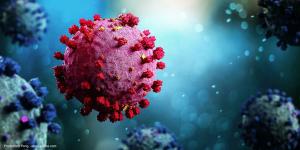
Published: August 11th 2021 | Updated:

Published: January 28th 2021 | Updated:
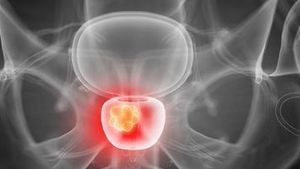
Published: October 25th 2021 | Updated: